Iraqi Officials Fear Full Blown Civil War
After the deadliest month of political fighting in five years, Iraq appears to be sliding rapidly into a new civil war that "will be worse than Syria," leaders say.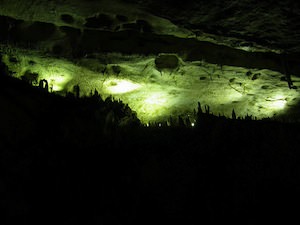
After the deadliest month of political fighting in five years, Iraq appears to be sliding rapidly into a new civil war that “will be worse than Syria,” leaders say.
The escalating violence has residents of Baghdad stocking up on rice, vegetables and other foods in case fighting or curfews prevent them from getting to shops. “It is wrong to say we are getting close to a civil war,” a senior Iraqi politician said. “The civil war has already started.”
The already-tense security situation in Shiite-dominated Iraq unraveled when roughly 36 Sunni Arab protesters were killed at a sit-in in a town north of Baghdad late last month. Observers say Sunni and Shiite Muslims are staying away from each other’s territories. Iraq’s population is majority Shiite.
“Signs of deteriorating security are everywhere,” writes Patrick Cockburn, The Independent’s Middle East correspondent. “Al-Qa’ida showed its reach on Monday when five car bombs blew up in overwhelmingly Shia southern Iraq, leaving 21 dead. The Sunni fundamentalist group, which had a resurgence in 2012, is responsible for killing a majority of the almost 1,500 Iraqis who have died in political violence so far this year.”
Cockburn explains that “The crises in Iraq and Syria are now cross-infecting each other. The two-year-old uprising of the Sunni in Syria encouraged their compatriots in Iraq, who share a common frontier, to start their own protests. These began last December and, until the army killed and injured scores of protesters at Hawijah, were largely peaceful.” Sunnis in Iraq drew courage from the knowledge that they are a majority in the region, though they are minority in their own country.
“The revolts in the two countries are ever more running in parallel,” Cockburn continues. “Al- Qa’ida in Iraq last month announced that it had founded the al-Nusra Front, the most effective Syrian rebel military force, devoted half its budget to support it and sent experienced al-Qa’ida fighters to Syria as reinforcements.”
Ghassan al-Attiyah, a political scientist in Baghdad, says that Prime Minister Nouri al-Maliki has alienated the country’s Sunni population by consolidating support among the Shiite. “[Maliki] may have won over the Shia but he has lost Iraq,” Ghassan said. He thinks the keys to the current crisis are Maliki stepping down and a more neutral prime minister taking his place.
“It is not likely to happen,” Cockburn writes. “The Shia of Iraq suspect that they may be facing a fight for their existence. These fears may be exaggerated, and deliberately inflated by the government, but they secure Mr Maliki’s political base. The Iranians have their openly expressed doubts about him, but they do not want to see him displaced while they are fighting to save their ally in Syria.”
— Posted by Alexander Reed Kelly.
Your support matters…Patrick Cockburn at The Independent:
Residents in Baghdad say that soldiers, whom they claim are Shia militiamen in uniform, have massed around Sunni enclaves in the city and are setting up checkpoints. Memories of the sectarian civil war in 2006 and 2007 when, in the worst months, some 3,000 people were butchered, may be exacerbating the sense of threat, but old fears are reawakening. Bombs have usually been directed against Shia in the past, but in recent weeks Sunni mosques and cafés are being targeted. “Before we could escape to Syria, but with the violence there where can we go?” asked one Iraqi. “There is no way out.”
The government of Prime Minister Nouri al-Maliki is floundering in its response. In dealing with the four-month-old protest movement by the Sunni Arabs, a fifth of Iraq’s population, who say they are treated as second-class citizens, he varies between denouncing them as terrorists and admitting that they have real grievances. The government has closed the main road from Iraq to Jordan, which the Sunni say is a collective punishment for their community. Overall, Mr Maliki has badly miscalculated in believing that, if he played for time, the Sunni protests would die away and he could divide the Sunni leadership with promises of money and jobs.
Sunni demonstrations, often taking the form of sit-ins in town and city squares, are now being guarded by well-armed fighters who set up their own checkpoints. At the weekend one stopped a car containing five Iraqi soldiers in civilian clothes, who were suspected of being intelligence officers, near a protest in Ramadi, the capital of Anbar. The men were all killed. The Iraqi government depends on an alliance between the Shia and the Kurds who, before the US invasion of 2003, were oppressed by the Sunni-dominated regime of Saddam Hussein.
Independent journalism is under threat and overshadowed by heavily funded mainstream media.
You can help level the playing field. Become a member.
Your tax-deductible contribution keeps us digging beneath the headlines to give you thought-provoking, investigative reporting and analysis that unearths what's really happening- without compromise.
Give today to support our courageous, independent journalists.
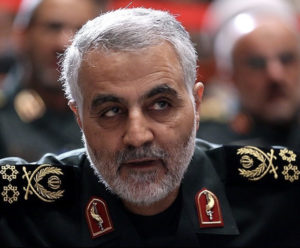

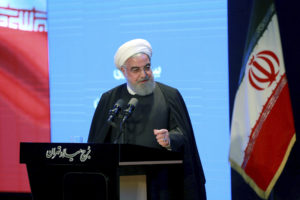

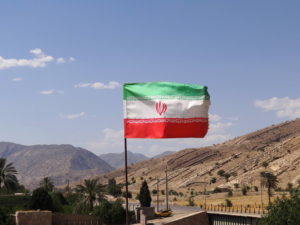
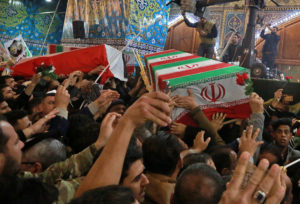
You need to be a supporter to comment.
There are currently no responses to this article.
Be the first to respond.